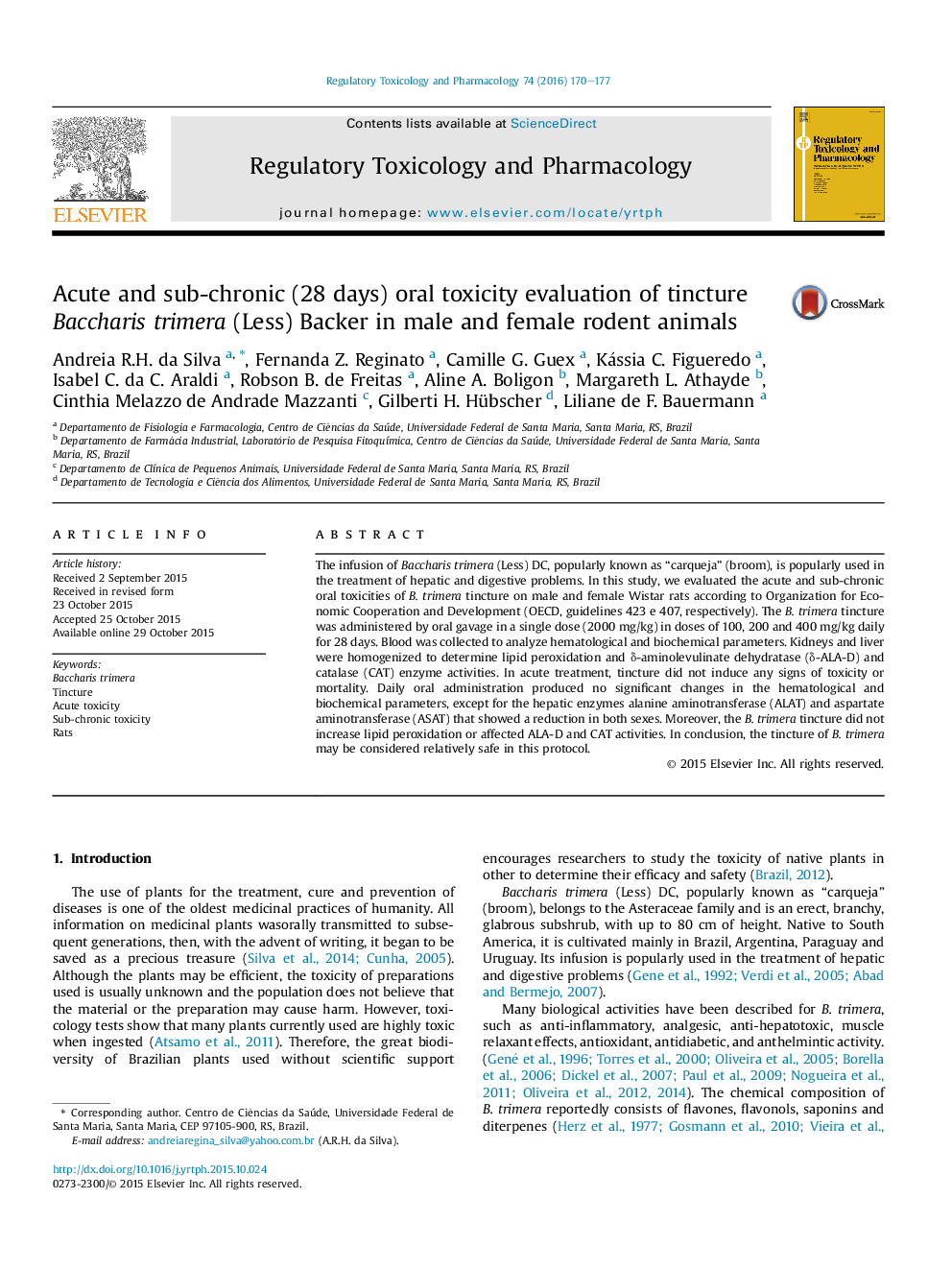| Article ID | Journal | Published Year | Pages | File Type |
|---|---|---|---|---|
| 5856093 | Regulatory Toxicology and Pharmacology | 2016 | 8 Pages |
â¢Phytochemical profile of Baccharis trimera.â¢Acute and subacute toxicity.â¢Liver function.
The infusion of Baccharis trimera (Less) DC, popularly known as “carqueja” (broom), is popularly used in the treatment of hepatic and digestive problems. In this study, we evaluated the acute and sub-chronic oral toxicities of B. trimera tincture on male and female Wistar rats according to Organization for Economic Cooperation and Development (OECD, guidelines 423 e 407, respectively). The B. trimera tincture was administered by oral gavage in a single dose (2000 mg/kg) in doses of 100, 200 and 400 mg/kg daily for 28 days. Blood was collected to analyze hematological and biochemical parameters. Kidneys and liver were homogenized to determine lipid peroxidation and δ-aminolevulinate dehydratase (δ-ALA-D) and catalase (CAT) enzyme activities. In acute treatment, tincture did not induce any signs of toxicity or mortality. Daily oral administration produced no significant changes in the hematological and biochemical parameters, except for the hepatic enzymes alanine aminotransferase (ALAT) and aspartate aminotransferase (ASAT) that showed a reduction in both sexes. Moreover, the B. trimera tincture did not increase lipid peroxidation or affected ALA-D and CAT activities. In conclusion, the tincture of B. trimera may be considered relatively safe in this protocol.
Graphical abstractDownload high-res image (144KB)Download full-size image
